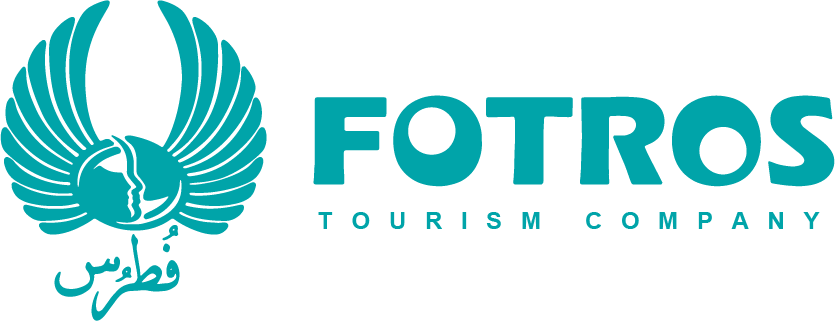
Medical Surgeries
Spinal Fusion


Spinal fusion is a surgical procedure used to join two or more vertebrae in the spine to create stability and reduce pain, typically by promoting the growth of bone between the vertebrae. This procedure is often performed to treat various spinal conditions, including:
- Degenerative disc disease: When the discs between vertebrae break down and cause pain.
- Scoliosis: A condition where the spine curves abnormally.
- Spinal fractures: Typically due to trauma or osteoporosis.
- Spondylolisthesis: When one vertebra slips forward over the one below it.
- Herniated discs: When the soft material inside a disc pushes through the disc's outer layer.
- Spinal stenosis: A narrowing of the spinal canal.
There are several different types of spinal fusion procedures, including:
Posterior Lumbar Interbody Fusion (PLIF): This procedure is performed through the back of the spine and involves removing a damaged disc and placing a bone graft between the vertebrae.
Anterior Lumbar Interbody Fusion (ALIF): In this procedure, the surgeon accesses the spine from the front and removes a damaged disc, replacing it with a bone graft.
Lateral Lumbar Interbody Fusion (LLIF or XLIF): This approach involves accessing the spine from the side and is often used to treat conditions such as degenerative disc disease.
Transforaminal Lumbar Interbody Fusion (TLIF): Similar to PLIF, this procedure is performed from the back and includes the removal of a damaged disc and insertion of a bone graft.
Cervical Fusion: This type of fusion is performed in the neck area (cervical spine) to treat conditions like herniated discs or cervical spondylosis.
Sacroiliac Joint Fusion: This procedure involves fusing the sacrum and ilium in the pelvic region and is used to treat sacroiliac joint dysfunction.


Minimally Invasive Spinal Fusion: In recent years, minimally invasive techniques have been developed to reduce the amount of tissue and muscle disruption during fusion surgery. This can lead to quicker recovery times and less post-operative pain.
The specific type of spinal fusion used depends on the patient's condition, the location of the spine affected, and the surgeon's preference. Spinal fusion procedures may involve the use of hardware such as screws, rods, or cages to stabilize the spine during the fusion process. After the procedure, it may take several months for the bones to fuse together, and patients often need physical therapy to regain strength and mobility. It's important to discuss the risks, benefits, and alternatives with a healthcare professional before undergoing spinal fusion surgery.


Before Spinal Fusion Surgery:
Medical Evaluation: Prior to the surgery, you'll undergo a thorough medical evaluation, including blood tests, imaging studies (X-rays, MRIs), and consultations with your surgeon and anesthesiologist.
Medication Review: Discuss with your healthcare provider about any medications you are taking, including prescription drugs, over-the-counter medications, and supplements. Some may need to be adjusted or discontinued before the surgery.
Preoperative Education: You'll receive information about the surgical procedure, the recovery process, and what to expect during your hospital stay. Ask any questions you may have to clarify your doubts.
Lifestyle Changes: Maintain a healthy diet, exercise, and manage your weight to optimize your body's ability to heal.
Smoking and Alcohol: If you smoke or consume alcohol, it's recommended to quit or at least reduce your consumption before surgery, as these can affect the healing process.
Home Preparation: Ensure your home is well-prepared for your return after the surgery. This includes arranging for someone to assist you and making your living space more accessible.
After Spinal Fusion Surgery:
Hospital Stay: The length of your hospital stay will depend on the extent of the surgery and your overall health. You'll be closely monitored for complications.
Pain Management: You'll likely experience post-operative pain. Your healthcare team will provide pain medications and monitor your pain levels to ensure you are comfortable.
Mobility and Physical Therapy: It's essential to follow your surgeon's advice on movement and physical therapy. You may need assistance with walking and transitioning between positions initially.
Wound Care: Keep the surgical incision site clean and dry. Follow the surgeon's instructions for changing dressings and caring for the wound.
Medications: Continue any prescribed medications, including pain relievers and antibiotics, as directed by your healthcare provider.


Bracing or Immobilization: You may need to wear a back brace or be immobilized in some way to support the fusion process. Follow your surgeon's guidance on brace usage.
Diet: Maintain a balanced diet rich in nutrients to support healing. Adequate hydration is essential.
Home Assistance: Ensure you have someone at home to assist you with daily activities, as you may have mobility limitations
Avoid High-Impact Activities: It's crucial to avoid heavy lifting, bending, and activities that put stress on your spine for several weeks to months, as advised by your surgeon.
Follow-up Appointments: Attend all post-operative follow-up appointments with your surgeon to monitor your progress and address any concerns.


Why Iran:
Iran, like many other countries, offers spinal fusion surgery as a medical treatment option for individuals with various spine-related conditions and disorders. Spinal fusion is a surgical procedure that joins two or more vertebrae in the spine to stabilize the spine, reduce pain, and address other issues. There are several reasons why individuals might choose to have spinal fusion surgery in Iran:
Waiting Times: In some countries, there can be long waiting times for elective surgeries like spinal fusion. Patients from countries with long waiting lists may opt for surgery in Iran to receive timely treatment.
Cost: Medical procedures, including spinal fusion, can be significantly more affordable in Iran compared to many Western countries. This makes Iran an attractive option for people seeking high-quality medical care without the high costs associated with healthcare in their home countries.
Quality of Care: Iran has well-trained medical professionals and modern healthcare facilities. Iranian surgeons and medical teams are often highly skilled and experienced in performing spinal fusion surgeries, ensuring a high standard of care.
International Patients: Iran has actively been promoting medical tourism, and many hospitals and clinics in the country are equipped to serve international patients. They often have English-speaking staff and cater to the needs of patients from abroad.
Technological Advancements: Iran has invested in medical technology and infrastructure, making it possible to offer the latest advancements in surgical techniques and equipment.
Reputation: Some hospitals and medical centers in Iran have built a reputation for providing high-quality care and have received accreditation from international healthcare organizations.
Tourism Opportunities: Patients and their families often combine medical treatment with tourism. Iran is a culturally rich country with a long history and many attractions, making it a unique destination for medical tourists.
Our services include:
![]() our online services include: quotes and consultation
our online services include: quotes and consultation
![]() Planning the highest word-level medical trips and quality hospitals and medical centers according to the patient's request and budget.
Planning the highest word-level medical trips and quality hospitals and medical centers according to the patient's request and budget.
![]() Appointing treatments by the most skilled and experienced doctors.
Appointing treatments by the most skilled and experienced doctors.
![]() Airport pick-up/drop off, check-ups, accompanying translator, book hotel (for patients and their families)
Airport pick-up/drop off, check-ups, accompanying translator, book hotel (for patients and their families)
![]() Pre-hospitalization / post-hospitalization care services
Pre-hospitalization / post-hospitalization care services




All-Inclusive Medical Travel Packages
based on your budget, our team will assist you in choosing the best hotels, doctors, and medical centers. Our packages include:
 Airport Pickup Services
Airport Pickup Services Airport Dropoff services
Airport Dropoff services Hotel
Hotel Ticket
Ticket visa
visa translator
translator Transfer
Transfer SIM Card
SIM Card Sightseeing
Sightseeing
 why Iran
why Iran
Patients may choose to have abdominoplasty (commonly known as a tummy tuck) in Iran for a variety of reasons
Cost, Quality of Care, Privacy and Discretion, Combined Tourism, no Waiting Times
![]()
Fotros is an Iranian health tourism company with a professional team consisting of a support team and word-level doctors in medical and cosmetic surgeries like Neurosurgery, Rhinoplasty, Breast cosmetic surgeries, Liposuction, tummy tuck, etc.










 why Iran
why Iran